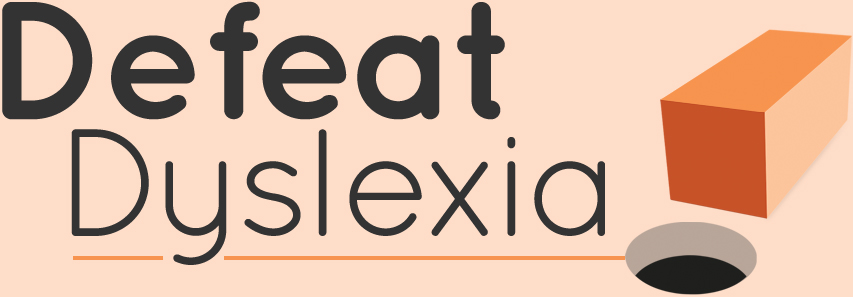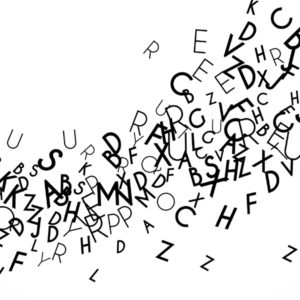There’s so much chatter in the media about dyslexia that it can be hard to know what’s real and what’s just a myth. Let’s clear the air and separate fact from fiction.
MYTH: Dyslexia is ‘middle class for stupid’
FACT: Dyslexics just learn differently
Dyslexia shouldn’t be seen as an ‘excuse’. It is a recognised learning difficulty that affects children of all abilities.
Dyslexics come in all shapes and sizes, from all walks of life – and at all points on the IQ curve.
MYTH: If you can read, you can’t be dyslexic
FACT: Different dyslexics have problems with different areas of learning
Dyslexia is most commonly diagnosed when a child has a problem learning to read. However, dyslexia is not just a ‘reading disability’. Many dyslexics successfully learn to read – but they struggle in other areas of learning, such as maths.
Many dyslexics even use coping strategies that cover up how much they struggle. A dyslexic child might spend ages practising, so that it looks like he can read easily.
MYTH: Dyslexia is a new fad
FACT: Dyslexia has been around forever
The word itself might be new, but the problems are as old as time. Experts are just now looking at the work of historical figures like Leonardo da Vinci and thinking, huh, this guy was probably dyslexic!
People have always struggled with what we now call dyslexia. But it’s only in the last few years that we’ve been able to label it and give dyslexics real support.
MYTH: Dyslexia is rare
FACT: Dyslexia is very common
Because so many people are never diagnosed, we can’t know for sure how common dyslexia is. Estimates vary, but the British Dyslexia Association says that one in ten people is dyslexic. That’s a handful in every classroom or workplace. Could the person sitting next to you be dyslexic?
 MYTH: Boys are more likely to be dyslexic than girls
MYTH: Boys are more likely to be dyslexic than girls
FACT: Boys and girls are equally likely to be dyslexic
It’s true that more boys are diagnosed with dyslexia, but don’t assume your daughter can’t be dyslexic. After all, not every dyslexic child is diagnosed. And we don’t know enough about the science behind dyslexia to say for sure that boys are more likely to be dyslexic than girls. We have to consider the different ways that boys and girls are expected to behave. It could be that girls are more likely to ‘suffer in silence’.
MYTH: You can’t be a doctor if you’re dyslexic
FACT: Dyslexics can do any job they choose
Doctor, teacher, writer, even astronaut – there’s no career path that’s off limits to a dyslexic! With the right support, dyslexics can overcome their learning difficulties to aim for the job they want. In fact, dyslexics’ special problem-solving abilities can often give them an edge over the rest of the population.
MYTH: If you’re dyslexic, you won’t amount to anything
FACT: There are successful dyslexics all around you
Dyslexics are just a waste of space? Tell that to Richard Branson! The billionaire businessman is just one famous person with dyslexia. Chef Jamie Oliver, actor Whoopi Goldberg, Nobel laureate Carol Greider, and even Prince Harry have all spoken out about their dyslexia.
MYTH: Dyslexia is something you grow out of
FACT: Dyslexia stays with you for your whole life
Dyslexia isn’t something you grow out of, but most dyslexics learn to cope with it better as they get older. School – where you have to spend every day reading and writing – can be the hardest time of life for people with dyslexia.
As soon as a dyslexic person leaves school, her dyslexia might feel less glaringly obvious. With the new freedom of being an adult, most dyslexics will choose a job that suits their strengths, rather than magnifying their dyslexic weaknesses. However, it’s wrong to think that dyslexia is something you ‘just get over’ given enough time.
 MYTH: Dyslexia is caused by neglect, a mental defect or bad teaching
MYTH: Dyslexia is caused by neglect, a mental defect or bad teaching
FACT: Dyslexia runs in families – it’s not ‘caused’ by anything
Dyslexia isn’t a defect. And it’s not caused by parents or teachers ‘doing something wrong’. It’s just a learning difficulty that’s carried in the genes – simple as that!
MYTH: Scientists are close to finding a cure for dyslexia
FACT: Dyslexia is a combination of difficulties and abilities that needs support, not a ‘cure’
Dyslexia spans such a wide range of learning difficulties that it’s unlikely that a pill – or a computer programme or a fix-it-quick course – could ever ‘cure’ it. (Be wary of expensive solutions that sound too good to be true!)
Scientists have looked for a ‘gene for dyslexia’ and found that it’s not as simple as that. A combination of genetic effects on biochemistry probably causes dyslexia.
It’s complicated stuff and even further research is not likely to result in a ‘magic solution’. The good news is: we don’t need a cure! We already know how to support dyslexia. Dyslexics can thrive as long as they’re supported in the right way.
Still wondering if your child could be dyslexic? Use my 5-minute dyslexia checklist for a quick answer.
Are there any other myths about dyslexia that you often come across? Let me know in the comments.











2 Responses
What is dyslexia? - Defeat Dyslexia
[…] to popular myth, dyslexia isn’t just ‘middle class for stupid’. Dyslexics come in all shapes and sizes, from […]
Key signs of dyslexia - Defeat Dyslexia
[…] idea that dyslexia is just a fancy term for stupid is, of course, a myth. But a dyslexic child may nonetheless joke that he’s […]